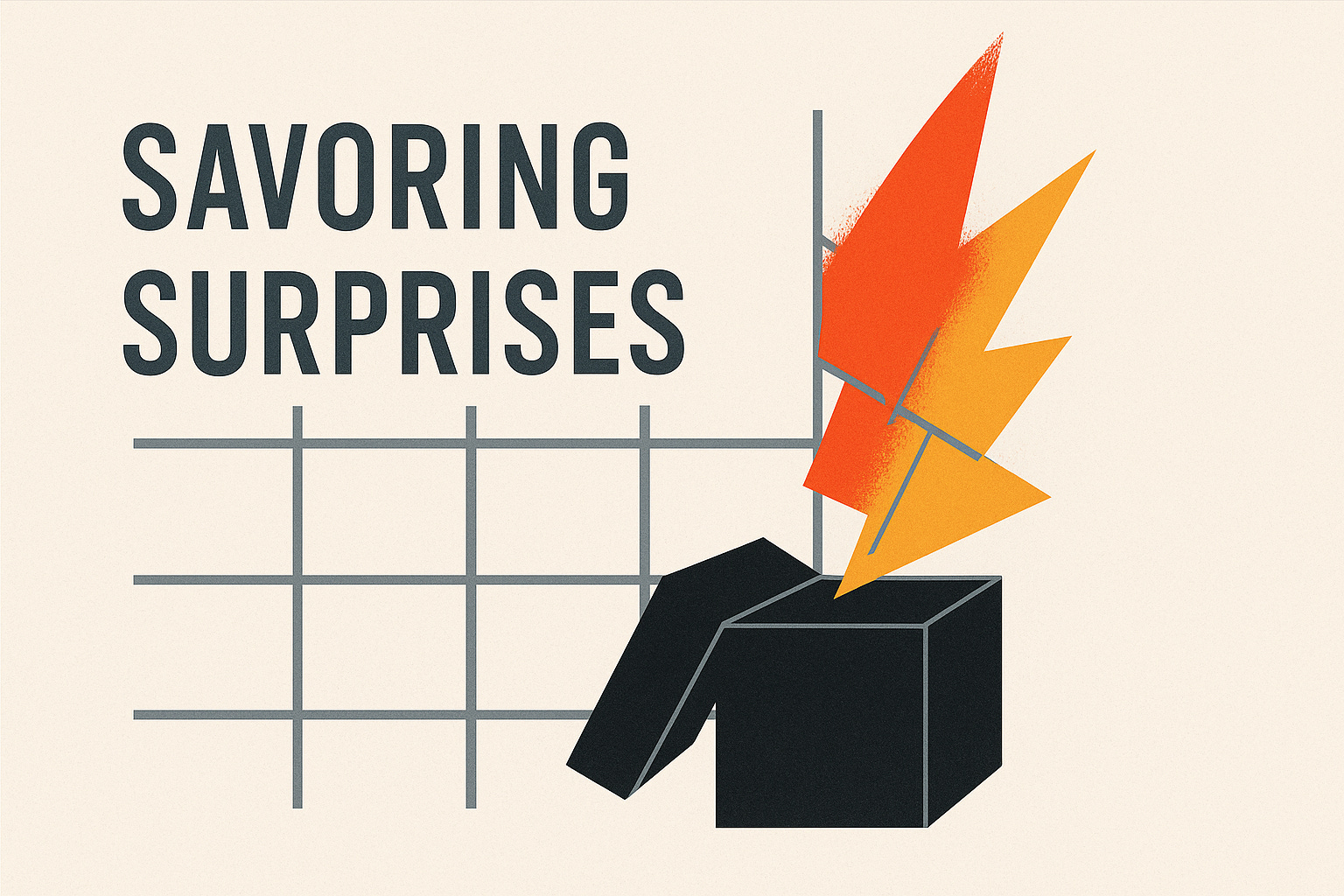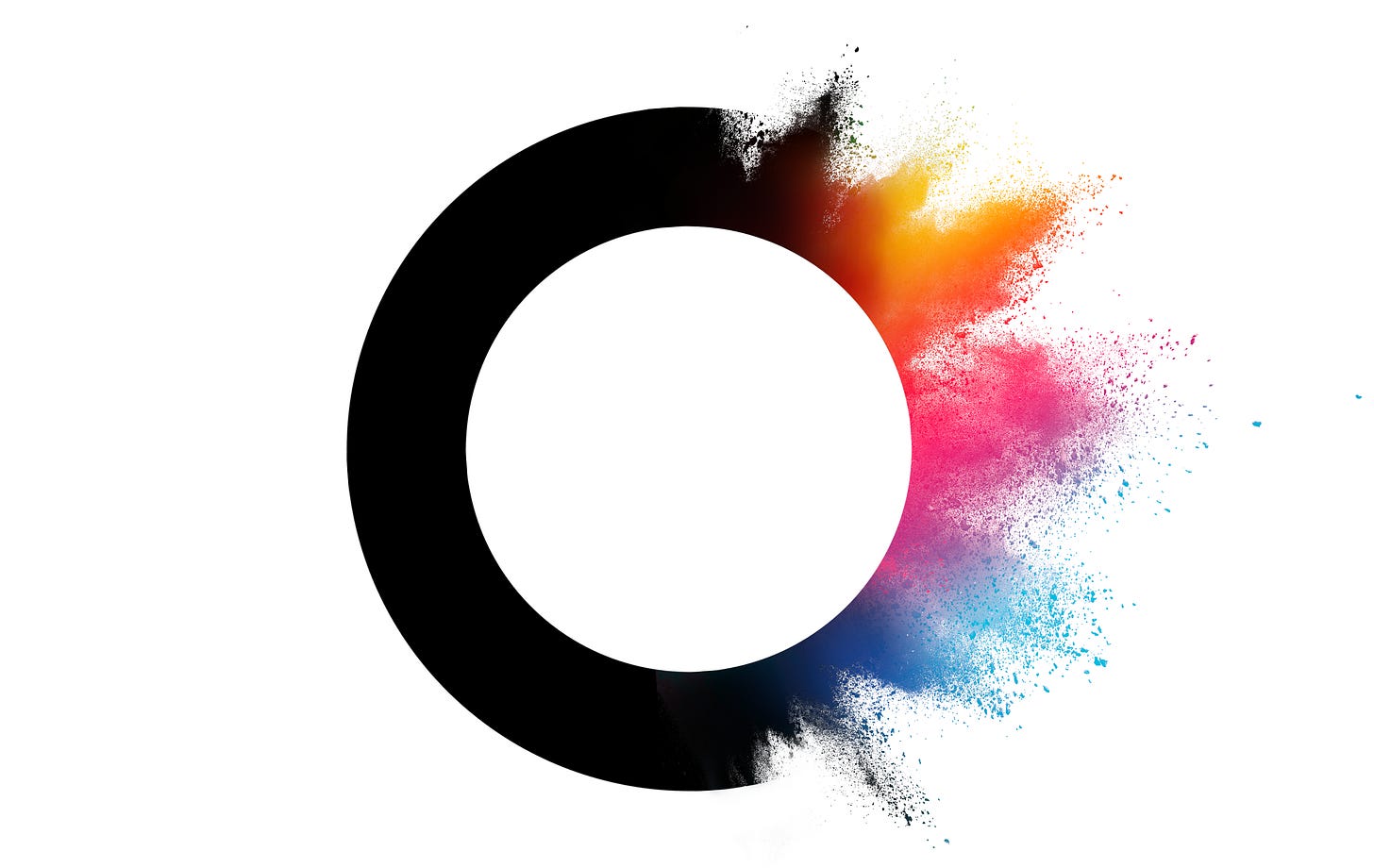The Pattern Breakers book is now available wherever you buy your books.
Key takeaways:
Uncomfortable with the unknown, founders often approach early customers hoping for validation; that reassuring nod, the “I knew it!” moment when their beliefs are echoed back to them.
This is a huge missed opportunity! Rather than trying to confirm what you think, engage with customers in a way that leads to them surprising you. Surprises > validation.
Seeking out those who merely echo your beliefs narrows your opportunity to find breakthroughs.
Positive and negative surprises are both valuable in your pursuit of breakthroughs.
I had the opportunity to talk to Emmett Shear of Justin.tv/Twitch fame last week on my Pattern Breakers podcast. His story reminded me of one of the critical characteristics I’ve seen in the founders who have successfully traveled the treacherous road to product-market fit: The ability to notice and savor surprises.
It’s tempting to seek validation for our ideas when we engage with early customers and potential co-conspirators. It’s the surprises that often lead to the biggest breakthroughs.
First, the Twitch story
A few years into getting Justin.tv off the ground, the founding team had already pivoted once and pushed for profitability, but they knew they weren’t on the path to greatness yet. Emmett Shear began losing faith. He decided to dial back for a couple months, not work as hard, hang out with friends, and play more video games. Paradoxically, the act of letting go opened his mind and brought him closer to a breakthrough idea.
Emmett Shear, co-founder of Justin.tv and Twitch
Emmett asked himself a simple question: How do I actually use our platform? The answer was also simple: He liked watching skilled people play video games.
It seemed like a small opportunity, but one worth exploring, so Emmett and his team created more appealing features for gamers to stream as well as a way for them to make money off their streams.
Twitch.tv was officially launched as a separate entity from Justin.tv in June 2011, more than four years after Justintv was originally launched. It featured video game live streaming, esports competitions, personal player streams, and gaming talk shows.
Twitch quickly became a runaway success and was acquired in 2014 for $970 Million. Since then, it has transformed gaming and media with billions of hours streamed each month.
So how does this connect to savoring surprises?
Emmett's insight that sparked Twitch perfectly illustrates the value of savoring surprises.
The ability to notice—and savor—surprises is a key overlooked skill of the greatest founders. It allows you to narrow in on the types of capabilities that will lead to breakthroughs.
This can be counterintuitive because what often happens when we experiment is an effort to validate a hypothesis we’ve already defined. But if we seek only validation, we will only confirm what we know.
Time and again I’ve seen startup teams struggle with this. Rather than venturing into the unknown with an eye toward seeking the unexpected, they approach early customers with seeking validation. They hope for that reassuring nod, the “I knew it!” moment when their beliefs are echoed back to them.
Yet they overlook the fact that each interaction with an early customer isn’t just for confirming a hypothesis—it’s a chance to uncover a nugget of unforeseen wisdom. Seeking out those who merely echo your beliefs narrows your opportunity to find breakthroughs. Instead, when sharing your ideas with like-minded people, you want to always hope for the unexpected. Seek to understand why some may have desperate needs you've never considered, needs that your insights can resolve in an empowering new way.
This leads to the first key thought: Seek surprises when engaging early customers
A few years ago, I was on a panel with Scott Cook, the founder and original CEO of Intuit, regarded by many as one of the best product minds in the technology industry. For decades, he has prioritized a deep understanding of customer needs in product development. In the early days, he introduced the “follow-me-home” strategy, where Intuit staff would observe customers using their products at home or work. This hands-on method helped identify the unexpected. During the Q&A, Scott mentioned that whenever a team presented a new product idea along with their research about its viability, he would ask, “What was the biggest surprise you encountered?”
When I heard him say this, it connected a bunch of disparate dots in my mind, yielding a new level of understanding about the value of surprises for the start-up process.
Surprises are so important to understand because you are pursuing a non-consensus idea for a future that is mostly unknown or at least ambiguous. You want to create a breakthrough product that people haven’t seen before, not just an incremental improvement. Here is the key principle behind Scott’s comment: Breakthroughs are always a discovery of something new by definition—and that means they must have an element of surprise when they are encountered.
Which leads to the second key thought: Surprises are more valuable than validation
Positive surprises are awesome. They show that your idea might be right and non-consensus. Emmett’s discovery that video gamers would like a dedicated version of the Justin.tv streaming platform to address their specific needs was a positive surprise.
Negative surprises are also valuable. In the early days of Okta, for example, Todd and his co-founder, Freddy Kerrest, believed that cloud computing would introduce new management challenges. So they created mock-up screens to show early prospective customers. Their original ideas were mostly based on problem resolution. The negative surprise was that customers were lukewarm on this solution at best. But here’s the thing – Todd and Freddy would ask “if this isn’t a top priority for you, can you help us understand what is?” The resounding feedback from lots of people was that managing identities across multiple cloud services was becoming a major headache. It was their willingness to tune into the negative feedback that led them to this. They would have never seen this if they had kept talking to more and more customers, hoping to find the first one to validate their initial hypothesis.
Negative surprises inform your understanding in one of three ways:
your implementation is wrong;
you are talking to the wrong people; or
your fundamental insight was wrong in the first place.
Let’s consider each of these:
When you encounter a negative surprise, it might be because you are implementing your insight wrong. This is what we saw in the case of Okta. They were talking to the right people (early adopters of cloud computing) and they had honed in on the right insight (that managing disparate cloud services and applications would be a struggle for these customers). But their implementation was off-target. Their early prototypes emphasized problem resolution and the customers helped them realize that the best way to implement their insight was to focus on identity management.
You might also be talking to the wrong people, those who won’t care about your insight no matter what you implement.
Keep in mind, if your idea is non-consensus, it follows that most people will dislike it—even if you are right.
Most “normal” people dislike even the most powerful and correct insights about the future because a true insight forces people to change their point of view and possibly even their daily lives in a way that can make them uncomfortable. Human beings are conditioned to favor the familiar. Paradoxically, that means if most people like your insight, it’s probably not an insight at all. It’s probably too similar to what they already know and like, which makes it more consensus than non-consensus, and more of a conventional idea than a powerful insight.
If you believe you are talking to the wrong people, then you can iterate on the people you spend time with until you unlock desperation and find yourself encountering positive surprises.
As an example, Justin.tv embodied a powerful insight, but with Twitch they finally found the right audience of gaming users with a desperate need for the capabilities they were offering.
Finally, if your insight was wrong, you have saved yourself the heartache of years spent on an idea that wasn’t destined for the greatness you hoped to achieve. There’s no point in pursuing a startup if you don’t even believe its underlying insight.
Knowing when this is the case is more of an art than a science and requires a high level of self-awareness and objectivity. I've attempted to give founders some useful tools to help navigate this in our forthcoming book Pattern Breakers.
Positive surprises are a key source of greatness.
When you encounter a positive surprise, the key is to deeply understand “what went right” and lean into it aggressively. This is an important distinction. The reason positive surprises matter most is they reveal desperation, which opens the door to success. Negative surprises are useful in determining that you haven’t unlocked desperation, but they should not be looked at as objections you need to overcome. Instead, they should push you to iterate to seek positive surprises by modifying your implementation, modifying your audience, or a combination of both. Positive surprises suggest that you are getting warmer in your understanding of these two variables, which is why you want to pursue them aggressively.
So, what does this mean for you?
Always look for surprises. Make it your instinct. If you see a coffee cup with an unfamiliar logo in a customer's office, ask about it. What company is that? What do they do? How did you find out about them? Why is that coffee cup there? If you're in a potential customer's office and see a checklist on the wall or anything that seems important to their daily work, ask about it. If someone uses your product in an unexpected way, learn why. If an unusual type of user is particularly pleased, find out what drives their delight. Understand what's working better than you anticipated. This is one of the greatest gifts a startup can receive and it can be one of your most important sources of competitive advantage.
Fundamentally, if your insight is correct, you should always be able to find specific people who are desperate for you to build a well-conceived product implementation of that insight. But as you explore whether this is indeed the case, you should become an expert at savoring surprises.
Specifically, this means holding three key questions firmly in mind:
Do I have a true insight?
Is this the best way to implement my insight?
Am I talking to the right people?
Breakthrough ideas are rare, and it's even rarer for people to recognize them when they quietly reveal themselves in the noise of the day to day. The founders who see them are often just more awake. The good news is you can train yourself to be one of those people - someone who savors surprises. Sometimes, this skill leads to greatness, as it did in the case of Emmett Shear.






Great article Mike, thank you.
When people ask me for feedback on their ideas, I always recommend them to read ‘The Mom Test’ and then come back :)
In some cases it actually works! Afterward, the conversation is completely different.
Just started listening to your podcast. Both the interview and this follow up are excellent.